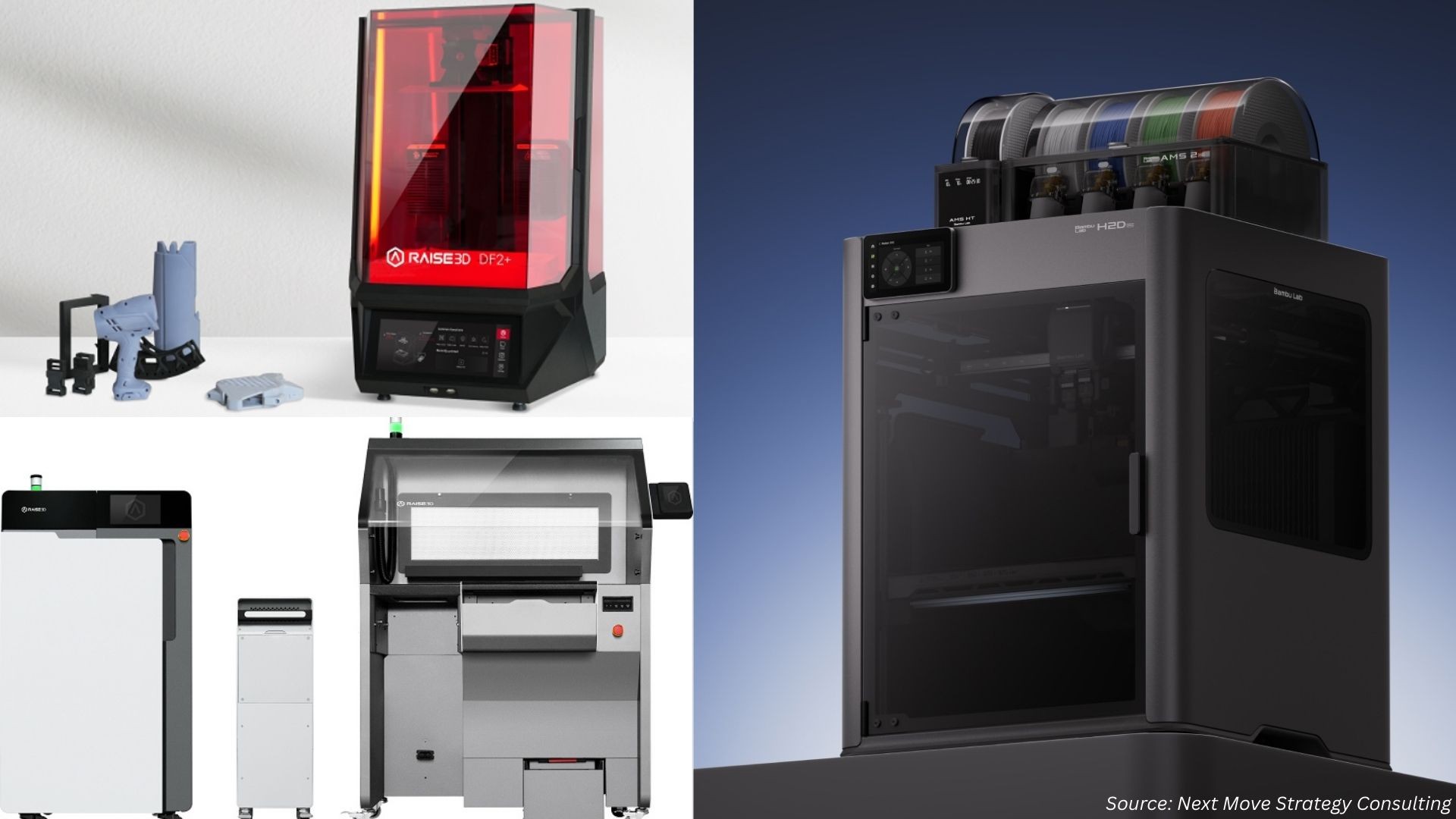
Smart Display Market by Display Technology (LCD, LED, E-Paper Display, and Other Display Technologies), by Type (Standalone Smart Displays, Integrated Smart Displays, Interactive Touchscreen Displays, Transparent Smart Displays, and Other Display Types), by Display Size (Below 24 Inch, 24 Inch to 55 Inch, and Above 55 Inch), by Resolution (UHD, FHD, HD, and Others), and Others – Global Opportunity Analysis and Industry Forecast, 2024–2030
Industry: Semiconductor & Electronics | Publish Date: 14-Aug-2025 | No of Pages: 368 | No. of Tables: 286 | No. of Figures: 248 | Format: PDF | Report Code : SE588
Market Definition
The global Smart Display Market size was valued at USD 16.45 billion in 2023, and is predicted to reach USD 48.02 billion by 2030, with a CAGR of 15.4% from 2024 to 2030. The global market refers to the evolving and dynamic sector of the semiconductor & electronics industry focused on the production, development, and distribution of technologically advanced display devices that incorporate features such as touchscreen interactivity, voice recognition, artificial intelligence (AI) capabilities, and connectivity to the Internet of Things (IoT). They also provide visual responses to voice commands, enable video calls, and serve as interactive tools for scheduling, weather updates, and entertainment.
This market encompasses a broad spectrum of applications, including residential homes, commercial spaces, healthcare, automotive, and education. It continues to expand as consumer demand for intelligent and connected display solutions grows.
The Increasing Adoption of Smart Home Solutions Globally Drives the Market Growth
The increased demand for smart home solutions is a significant driver of the smart display market growth. As consumers increasingly seek to enhance convenience, security, and energy efficiency of their homes, smart displays have emerged as a central component of this transformation. These devices serve as intuitive hubs that control a variety of smart home gadgets, ranging from thermostats and lighting systems to security cameras and doorbell cameras. Their interactive touchscreens and voice-activated features provide users with seamless control and monitoring of their connected devices, making it easier to manage and customize their living spaces.
Additionally, smart displays offer features, such as digital assistants, weather updates, and visual notifications, further enhancing their appeal in the smart home ecosystem. As smart homes become commonplace, the demand for smart displays as an essential tool for managing and interacting with these systems continues to fuel the growth of the market.
Rising Advancements in the Healthcare and Telemedicine Industry Fuels the Market Growth
The rising adoption of smart displays in healthcare and telemedicine drives the smart display market growth. These devices are proving to be transformative tools in the healthcare industry, as they facilitate remote patient monitoring, telehealth consultations, and efficient communication among medical professionals.
Smart displays enable high-quality video conferencing and provide a visual platform for healthcare providers to assess patients, share medical records, and discuss treatment plans in real time. This adoption of technology is essential for broadening the availability of healthcare services, particularly in remote regions and during public health crises such as the COVID-19 pandemic.
Moreover, integrating AI and medical software into smart displays allows for precise diagnostics and patient data management. As healthcare providers and institutions increasingly recognize the value of smart displays in delivering more effective and accessible healthcare, their use is set to drive the growth of the market in the healthcare and telemedicine sectors.
For instance, in March 2023, Samsung Electronics America launched the industry's first 4K QLED Smart Healthcare TV. In partnership with ShareSafe, this innovative product transforms in-room displays into versatile communication hubs personalized for hospital patients and senior care residents, leading to improved collaboration, patient engagement, and workflow efficiency.
Security Vulnerabilities in Smart Home Displays Restrain the Market Growth
Security vulnerabilities in smart display technology represents a significant restraining factor for the smart display market. The potential for security breaches in smart displays poses a substantial risk to users. Insufficient security measures, such as weak passwords and inadequate encryption, can expose sensitive data. Therefore, manufacturers must prioritize robust security features within smart displays, including strong authentication methods and quickly fixing vulnerabilities through regular updates.
The Introduction of Laser-Based Display Technology Creates Ample Growth Opportunities
Laser-based display technology is presenting substantial opportunities within the smart display market. Its exceptional brightness, color accuracy, long-lasting durability, and energy efficiency make it a prime choice for diverse applications, ranging from home theaters to outdoor signage and augmented reality experiences. The extended lifespan and reliability of laser-based displays result in reduced maintenance costs and align with sustainability objectives.
As this technology becomes increasingly accessible and cost-effective, it leads to innovation in the realm of smart displays, particularly in sectors where top-tier visual quality and energy conservation are paramount. This, in turn, broadens the market's potential for expansion.
Asia-Pacific Holds a Major Share in the Smart Display Market
The Asia-Pacific region has asserted its dominance in the smart display market, primarily driven by its seamless integration with various Internet of Things (IoT) devices, enhancing home convenience and efficiency. This phenomenon is particularly reinforced in Japan due to its rapidly aging population, where smart displays play a vital role in addressing specific needs and providing essential assistance. As a result, the smart display industry is flourishing in Japan, propelled by a tech-savvy populace surrounded by a sophisticated ecosystem of smart home innovations.
Furthermore, prominent industry players in the region, such as Sony Corporation, Panasonic Corporation, and Sharp Corporation, actively engage in the manufacturing research and development of smart displays globally, contributing significantly to the market expansion. For example, in September 2023, Sony unveiled the BRAVIA XR Master Series A95L OLED TV, showcasing an exceptional range of colors and unmatched contrast. This latest addition is poised to leave a substantial imprint on the smart display landscape, offering consumers an extraordinary visual experience through cutting-edge display innovation.
In addition, in April 2023, Sharp collaborated with E Ink to introduce a 42-inch monochrome ePaper poster. This eco-friendly poster is especially well-suited for locations with complex traditional digital signage setups. It boasts a slim and lightweight design and operates with zero power consumption during display, utilizing ambient light for visibility, even in well-lit environments.
Moreover, the rapid growth of the electronics industry is linked to the evolution of smart displays. Electronic products, including smart shows, have played a pivotal role in shaping modern lifestyles in the digital era. This technological surge has facilitated the seamless integration of various activities, marking a significant advancement in the digital revolution.
Furthermore, the escalating demand for electronic devices, particularly smart displays, is poised to be a prominent driving force in the global economy. According to the Federation of Indian Chambers of Commerce & Industry (FICCI), India's television production is expected to experience a CAGR of 20%, growing from USD 4.24 billion in 2020–21 to USD 10.22 billion by 2025–26. India offers various television sets with high resolution and sharp picture quality, including LCDs, plasma, and LEDs. The growth of television production in India represents a favorable development for the smart display market in the country.
Europe Witnessed Substantial Growth in the Smart Display Market
The European automotive industry, featuring major players such as Volkswagen, BMW, Daimler, and Audi, is a key driver of the global market. These companies are renowned for pioneering advanced vehicle smart displays, setting industry benchmarks, and spurring the demand. Their focus on enhancing the driving experience through innovative user interfaces has led to widespread smart display adoption and market expansion.
For instance, in August 2023, BMW partnered with Samsung to create the MINI Interaction Unit, a cutting-edge 9.4-inch OLED display with the MINI 9 operating system. It offers features such as GPS navigation, a smart voice assistant, and music control, setting new standards in automotive display technology. This innovation is poised to catalyze the adoption of smart displays in the wider automotive industry and drive the smart display market growth.
Furthermore, the rising adoption of smart displays in the healthcare industry is creating new opportunities for growth and innovation within the smart display market. The integration of smart displays in healthcare settings, such as hospitals and clinics in this region, is driving demand for specialized solutions that cater to medical data visualization, patient monitoring, and telemedicine. This factor contributes to the expansion of the global market.
For example, in January 2021, Denmark introduced the CAI-X research center, in which medical professionals, engineers, and technology companies collaborate to develop AI solutions for the healthcare sector. This factor is poised to propel the growth of the smart display market. This collaboration is expected to drive the demand for smart displays within the healthcare industry, as these devices will serve as the primary interface for healthcare professionals to access, interpret, and act upon AI-generated insights.
In addition, the expanding urban population in the region contributes to the growth of smart displays within the smart home market. With more people relocating to urban settings, there is a heightened demand for home automation solutions, including smart displays, which offer convenience, security, and energy efficiency to urban residents. For instance, as of 2023, Spain's urban population reached 81.6%, with an increasing number of individuals relocating to urban settings. Consequently, this surge in urban living has generated a significant demand for smart homes within the region.
Competitive Landscape
Various leading manufacturers in the smart display market include Samsung Electronics, LG Corporation, Sharp NEC Display Solutions, Sony Corporation, Google, Amazon.com, Inc., Xiaomi Corporation, TCL Electronics Holdings Limited, Apple Inc., Roku, Inc. and others. These market players are adopting various strategies, such as product launches, to remain dominant in the smart patient display.
For instance, in September 2023, LG Electronics launched the LSAL006 model and expanded its LG MAGNIT Micro LED display series by showcasing a 118-inch 4K resolution screen. Leveraging its in-house Micro LED technology and the webOS smart TV platform, this launch bolsters the smart display market with superior visual quality and a seamless user experience.
Also in August 2023, Sony India Pvt. Ltd., the Indian subsidiary of Sony Corporation, launched a range of 13 new smart TVs, including the BZ40L, BZ35L, and BZ30L models. These models are tailored for commercial applications, with a strong focus on delivering outstanding picture quality. This factor contributes to the growth of the smart display market.
Smart Display Market Key Segments
By Display Technology
-
LCD
-
LED
-
E-Paper Display
-
Other Display Technologies
By Type
-
Standalone Smart Displays
-
Integrated Smart Displays
-
Interactive Touchscreen Displays
-
Transparent Smart Displays
-
Other Display Types
By Display Size
-
Below 24 Inch
-
24 inch to 55 Inch
-
Above 55 Inch
By Resolution
-
UHD
-
FHD
-
HD
-
Others
By Application
-
Smart Home
-
Digital Signage
-
Automotive
-
Healthcare
-
Other Applications
By Sales Channel
-
Direct Sales
-
Retailers and Distributors
-
E-Commerce Or Online Sales
By Region
-
North America
-
The U.S.
-
Canada
-
Mexico
-
-
Europe
-
The U.K.
-
Germany
-
France
-
Italy
-
Spain
-
Denmark
-
Netherlands
-
Finland
-
Sweden
-
Norway
-
Russia
-
Rest of Europe
-
-
Asia-Pacific
-
China
-
Japan
-
India
-
South Korea
-
Australia
-
Indonesia
-
Singapore
-
Taiwan
-
Thailand
-
Rest of Asia-Pacific
-
-
RoW
-
Latin America
-
Middle East
-
Africa
-
Key Players
-
Samsung Electronics
-
LG Corporation
-
Sharp NEC Display Solutions
-
Sony Corporation
-
Google
-
Amazon.com, Inc.
-
Xiaomi Corporation
-
TCL Electronics Holdings Limited
-
Apple Inc.
-
Roku, Inc.
Report Scope and Segmentation
|
Parameters |
Details |
|
Market Size in 2023 |
USD 16.45 billion |
|
Revenue Forecast in 2030 |
USD 48.02 billion |
|
Revenue Growth Rate |
CAGR of 15.4% from 2024 to 2030 |
|
Analysis Period |
2023–2030 |
|
Base Year Considered |
2023 |
|
Forecast Period |
2024–2030 |
|
Market Size Estimation |
Billion (USD) |
|
Growth Factors |
Increasing adoption of smart home solutions globally Rising advancements in the healthcare and telemedicine industry |
|
Countries Covered |
28 |
|
Companies Profiled |
10 |
|
Market Share |
Available for 10 companies |
|
Customization Scope |
Free customization (equivalent up to 80 working hours of analysts) after purchase. Addition or alteration to country, regional, and segment scope. |
|
Pricing and Purchase Options |
Avail customized purchase options to meet your exact research needs. |




















 Speak to Our Analyst
Speak to Our Analyst

























